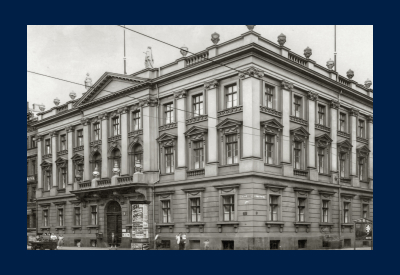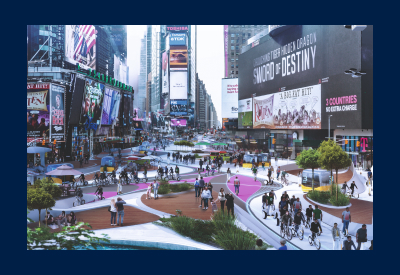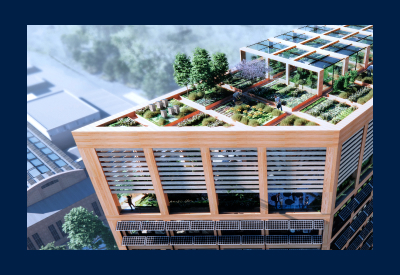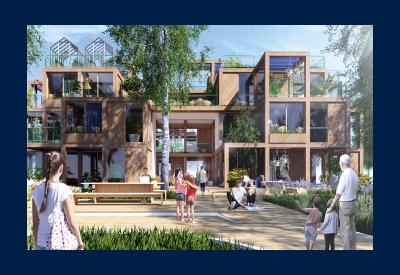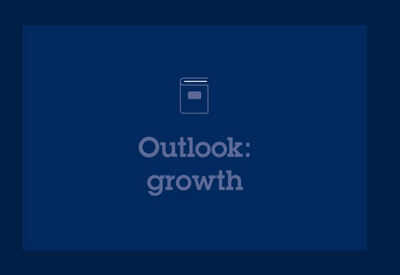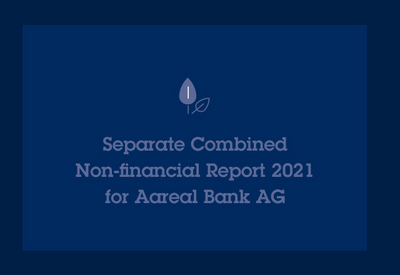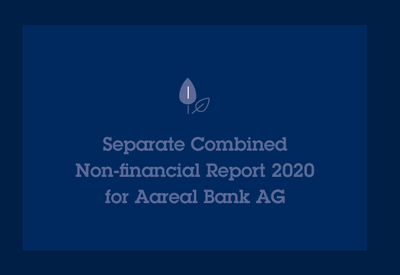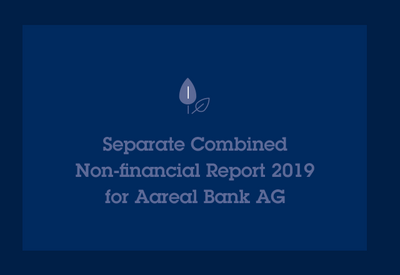YOUR COMPETITIVE ADVANTAGE.
The commercial
properties of tomorrow
The commercial properties of tomorrow
There will still be office buildings, hotels, shopping centres, logistics centres and many other properties used for commercial purposes in the city of tomorrow. But how will they be different? And how significant will they be?
More sustainable, smarter, more flexible – commercial properties will change in a multitude of ways in the years to come. To reach international climate targets, they will have to meet more stringent ecological standards in the future, gradually transforming into smart buildings. In terms of intended use, being adaptable and multifunctional will be increasingly important. Mega trends like urbanisation, mobility, individualisation and new work are seeing different areas of life, such as home and work, career and leisure or experiences and consumption steadily merge together.
These different areas of life merging together is also the main reason why commercial properties are becoming even more critical facets of a city neighbourhood or district. Their function, and therefore their value, increasingly depends on the overall planning and development concept aimed at improving the quality of life and experience of the people who live in that neighbourhood. In addition to economic factors, developers and investors are therefore being called upon to consider the social and ecological impacts of a commercial property on its surroundings to a far greater extent than ever before.
Offices in transformation
The way different areas of life are merging is already quite evident in office buildings. The remote working trend means that they are increasingly becoming places to meet, exchange and collaborate, with co-working areas, project zones or meeting spaces. By contrast, dedicated desks or personal offices are losing significance.
However, office buildings will not lose their present status in the city of tomorrow, especially in centrally located areas. Although demand for office space overall is likely to go down slightly and shift, the pandemic showed us just how crucial personal interaction is. For many employees, the office is not merely a place to coordinate things or occasionally work together on projects; it is also a place to formulate ideas, exchange information and for personal social contact. Not to mention that appealing, centrally located offices with good transport connections also enhance a business's brand, helping it to attract and retain employees.
New concepts in retail
Even though many products are now purchased online, a bricks-and-mortar retail store is still important – for inspiration, to try out products, to get personalised advice or to experience something. More than ever, on- and offline offerings are blending together, and multichannel business models are on the rise. Many retailers have had their own online shops for quite some time, offering digital transactions and delivering purchases to peoples' homes. And online shops, on the other hand, are setting up bricks-and-mortar flagship stores and offering their customers the option of having the items they want delivered to a store.
Shopping centres in particular are poised to benefit from this mixture of on- and offline offerings.
While these are all reasons why retail shops and shopping centres will continue to be an important part of cities, especially larger ones, their business models will evolve. To be as attractive to as many people as possible, it will be ever more important to combine shopping with other experiences and services, such as hospitality, health and wellness offerings ("retailtainment") or digital technologies, such as virtual and augmented reality or AI-based digital assistants, with the location of a shop and the shopping centre's design becoming more critical.
"In future, commercial property will be considerably more sustainable and more flexible in terms of use. For example, co-working spaces and project zones are on the rise, because hybrid working means offices are increasingly becoming places to meet, exchange ideas and collaborate."

Christof Winkelmann
Member of the Management Board
Aareal Bank
Higher expectations for hotels
Some mega trends also mean we can expect changes for hotels. The trend towards urbanisation will lead to new mega hotels in many large cities with neo-ecology and connectivity trends impacting hotel architecture and facilities. The new work trend will place fresh demands on city hotels as more hotel guests also use hotels as a place to work, meaning they will expect it to have the same offerings and conveniences as the workplace or the home office.
It seems unlikely that hotels will cease to be important or that the number of stays will decline, because the desire to travel remains strong and has always held a special fascination for people. And ultimately online tools can only go so far in establishing, maintaining and extending business relationships. Occupancy rates at most hotels have long since returned to pre-pandemic levels, both in terms of holiday and business travel.
The rising significance of logistics centres
Further growth can be expected in logistic centres. The dynamic growth that the e-commerce market has been experiencing and additional tasks for logistics providers are fuelling a rise in future demand for warehousing and dispatch centres, as well as transport services. Furthermore, geopolitical changes currently underway in the logistics sector are boosting growth further as supply chains adapt in connection with nearshoring efforts over the next several years, entailing the need for additional warehousing and transport capacities.
Urbanisation will enhance the role of logistics centres still further. We can expect to see a new type of urban logistics emerge, providing cities with goods and services in a fast, efficient and CO2-neutral manner. Key elements of this urban logistics will include not only sustainability-orientated transport, but also new urban hubs to minimise delivery times and reduce environmental damage while also freeing up transport resources.
A growing need for knowledge
For all property, it is safe to say that the high inflation rates we are currently experiencing, and the hike in interest rates they have caused, have made it necessary to scrutinise property to avoid bad investments and decisions – not to mention that a property's value increasingly depends on ESG factors.
That is why property investors need to keep up with how individual markets are changing more than ever and evaluate how these changes impact on individual property classes. Sector and market expertise are becoming even more crucial, as is knowing how to increase a property's sustainability performance. Ultimately the city of tomorrow will have every type of commercial property, but in the long term that property will primarily be green.
Projects
Aareal Bank once again supported many investors in financing their commercial properties in 2022. Learn more about 2022’s largest projects.
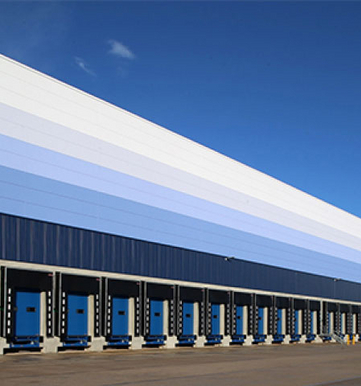
More information about the city of tomorrow:
ZIA | development of city centres
In this article, the ZIA describes a wide range of measures taken by the property industry to develop city centres.
KPMG | The Future of Real Estate
The online platform contains numerous expert talks on current trends in the property industry.
Deloitte | 2023 Commercial Real Estate Outlook
The study describes central expectations, developments and challenges faced by property markets around the globe.
Immobilien & Finanzierung | guest contribution by Christof Winkelmann (only available in German)
Christof Winkelmann describes the developments Aareal Bank expects on the European commercial property markets.
Image Concept
3deluxe: the architects breaking with conventional perspectives
Building the future requires new design ideas for living and working space.
Only a few architectural firms around the world consistently centre their work around their visions. Among them is a group of professionals headquartered in Wiesbaden – just like Aareal Bank. The 40 architects working at 3deluxe develop impressive and multi-award-winning studies and projects that deliberately break with conventional perspectives. They also focus on interconnectivity and sustainability – for modern urban development, ground-breaking office buildings, and flexible residential structures.
We are publishing this year’s Annual Report under the motto “Building your tomorrow”, which verbalises our aim to enter into dialogue with the pioneers of our future – a good reason for letting the visions of 3deluxe inspire the image concept of this Annual Report.
3deluxe: the architects breaking with conventional perspectives
